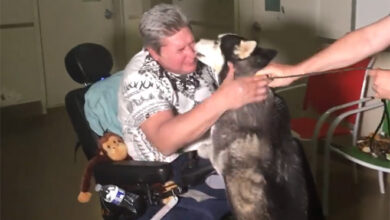Are Rottweilers Aggresive?

Rottweilers, with their robust physique and commanding presence, have often been the subject of debates about canine temperament. Commonly painted in popular culture as formidable and sometimes aggressive dogs, many potential dog owners wonder about the truth behind this depiction. Are Rottweilers inherently aggressive, or is there more to the story? By exploring their history, natural temperament, and the roles of training and environment, we can better understand the Rottweiler’s true nature.
Historical Roots of the Rottweiler
To better understand a Rottweiler’s temperament, it’s essential to first appreciate its historical background. Originating from the Roman Empire, Rottweilers were initially employed as herding and guarding dogs for both livestock and camps. This ancestry means they were bred for their strength, intelligence, and protective instincts, traits that remain evident today.
Rottweiler’s Natural Temperament: Protective and Loyal
Inherently, Rottweilers are not aggressive without cause. They are loyal, intelligent, and protective. Their guarding instincts are strong, and they can be wary of strangers. However, when well-socialized and trained, a Rottweiler can discern between genuine threats and benign situations, ensuring that their protective nature doesn’t translate into unwarranted aggression.
The Crucial Role of Training in a Rottweiler’s Behavior
Training is paramount for any dog breed, but with powerful breeds like the Rottweiler, its importance cannot be understated. Proper training helps channel the Rottweiler’s strength and intelligence positively. Socialization from an early age, combined with consistent positive reinforcement techniques, can mold a Rottweiler into a well-adjusted, obedient, and sociable pet. Without training, however, a Rottweiler’s protective instincts might become overbearing, leading to unwanted aggressive behaviors.
Environmental Influences on a Rottweiler’s Temperament
Just like humans, Rottweilers are products of their environment. A nurturing, positive, and structured environment fosters a calm and balanced Rottweiler. In contrast, a Rottweiler subjected to abuse, neglect, or inconsistent leadership can develop behavioral problems, including unwarranted aggression. Environment plays a pivotal role in shaping a Rottweiler’s behavior, underscoring the responsibility of an owner in ensuring a positive setting.
Rottweilers in Families: How Do They Gel with Kids and Other Pets?
With the right environment and training, Rottweilers can be fantastic family dogs. Their loyalty extends to all family members, and they can be particularly gentle with children they’ve grown up with. However, due to their size and strength, supervision is essential during interactions with younger kids. As for other pets, early socialization is the key to ensuring harmonious coexistence.
Conclusion: The Reality Behind the Rottweiler’s Reputation
The narrative that brands Rottweilers as inherently aggressive is an oversimplified one. While they are strong and have protective instincts, with the right training, socialization, and environment, they can be loving, loyal, and dependable companions. As with any breed, understanding and respecting a Rottweiler’s unique traits and needs are paramount for a rewarding relationship. Embracing their intelligence and loyalty will undoubtedly showcase the best this magnificent breed has to offer.
Frequently Asked Questions About Rottweilers & Aggression
1. Are Rottweilers naturally aggressive breeds?
Rottweilers are not inherently aggressive, but they are strong-willed and protective. With their history as working dogs, they can be assertive, but proper training and socialization from a young age can mold them into gentle and well-behaved companions.
2. Why is early training crucial for Rottweilers?
Early training is essential for Rottweilers to instill desired behaviors and prevent unwanted tendencies. Given their size and strength, a well-trained Rottweiler is easier to manage and ensures safety for both the dog and those around it.
3. How does the environment influence a Rottweiler’s behavior?
A Rottweiler’s behavior can be significantly shaped by its environment. A positive, engaging, and loving environment fosters a calm and balanced dog. In contrast, a Rottweiler exposed to neglect or harsh treatments can develop aggressive tendencies.
4. Are Rottweilers good family pets?
Yes, Rottweilers can be excellent family pets. They are loyal and protective, forming strong bonds with their families. With proper training and socialization, they can be gentle with children and get along with other pets.
5. How can I prevent my Rottweiler from becoming territorial?
Socialization and training are key. Expose your Rottweiler to various environments, people, and other animals from a young age. Positive reinforcement techniques can help teach them that not every newcomer is a threat.
6. How do Rottweilers typically react to strangers?
Rottweilers can be wary of strangers due to their protective nature. However, with consistent socialization and training, they can learn to discern between genuine threats and harmless visitors, reducing unnecessary aggressive reactions.
7. What are the benefits of adopting a Rottweiler from a rescue or shelter?
Adopting a Rottweiler from a rescue or shelter can save a life and give a second chance to a deserving dog. Many Rottweilers in shelters are there through no fault of their own, and they can make wonderful companions. Adopting from a rescue often means the dog has received some training, and shelters can provide insights into a dog’s behavior and temperament.
8. Can neutering or spaying a Rottweiler reduce aggressive tendencies?
Neutering or spaying can help reduce certain aggressive behaviors, especially those linked to mating instincts. It’s always recommended to consult with a veterinarian about the appropriate age and method for neutering or spaying your Rottweiler.
9. My Rottweiler growls when I approach his food. How can I address this?
Food aggression can be addressed through consistent training. Start by feeding your Rottweiler by hand, teaching them to sit and wait for food, and introducing the “leave it” command. Make sure they eat in a calm environment and avoid startling them during meals.
10. Are Rottweilers more aggressive than other breeds?
Rottweilers are not more aggressive by nature than other breeds. Their perceived aggression often stems from their protective instinct and their strength. With proper upbringing, training, and socialization, Rottweilers can be as gentle and loving as any other breed.





